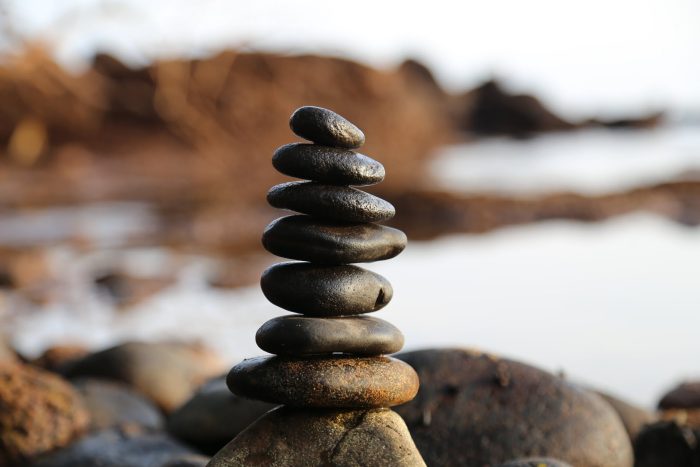You are the conductor of a great orchestra. The orchestra is in your own consciousness, it’s internal, but it manifests itself in the world—in all the sounds and movement and appearances of the world. You may think that you are an isolated entity, tossed in a sea of chaos, trying to make your way through with your own wits. In fact, everything you’ve ever known is vibrations of your Self. It may feel like you’re at the mercy of the world, of people and events, but these events and people are only a function of your own consciousness.
So when we see a conductor warming up with an orchestra before performance, and all the violins are tuning up and the percussion is going, and the horns are blaring different notes, they’re playing in dissonance and chaos. But when the conductor taps their baton (tak-tak-tak), the orchestra resolves into silence. And when a confident and polished and accomplished conductor begins to waive their baton, the whole orchestra coalesces around this movement and begins to express harmony.
You are that conductor. Through meditation, we’re able to bring this orchestra from the stage of chaos into silence. It’s past, present, and future: Your past is dissonant, chaotic, out of control. Your present is silence, stillness, emptiness. And your future is harmony, equanimity, perfection. Only out of silence can one begin to express a perfect purity of movement and intention.
But silence doesn’t mean lack of sound. Silence is of the mind. I’m inviting you into that stillness and silence. And the way one gets there is either by proximity to a teacher—in which case that silence is contagious, and thoughts fall away naturally, questions evaporate, and a deep beingness sets in—or through meditative practice.
So that’s what meditation is. Why is it important? It’s not important for everyone. But for people on a particular spiritual path, it becomes crucial. Because without it, our waters are turbulent. There’s always thinking about past and future—there’s always guilt and remorse, fear, dread, discomfort. We think those things come from the outside world. There is no outside world, there’s only yourself. When your waters are still, you can drop a little pebble and in, and it creates perfect reverberations. If your waters are turbulent, you can throw the whole Empire State Building in and it’s not going to change anything. In other words you can try and strive and do and plan and work, and nothing will change. You won’t find peace. If we can find peace in this life, then we’ve solved a sort of fundamental riddle. Meditation helps us do that.
So how to meditate? There are a lot of different ways. The simplest might be to use a meditation app like Insight Timer or Headspace. Program it for ten minutes to start out, and set an ending bell. During that time, we will simply sit still. If thoughts arise, we can let them pass through our consciousness like clouds in the sky. We don’t have to suppress or push them away. They’re not our enemy, they are whatever arises. Building a durable meditation practice takes some time and dedication, but you’ll start seeing benefits right away. You’ll get a glimpse of a certain state that may one day become your baseline state. It’s what the saints and sages call Samadhi—moving in the world with natural ease, in a state of desireless bliss. That’s when the orchestra, the conductor, and the audience have become one.









Read 5 comments and reply